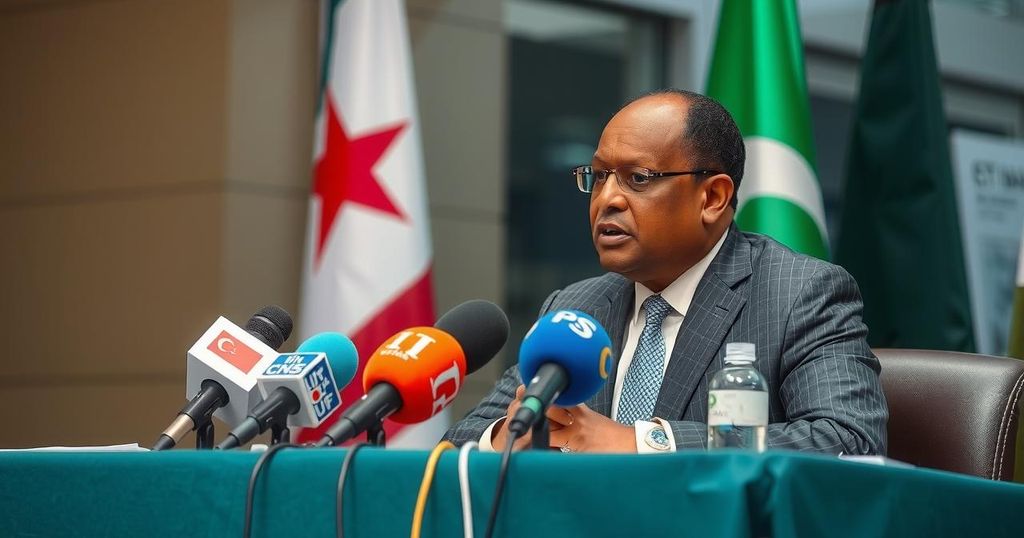Somalia’s Foreign Minister has categorically denied reports alleging that the Somali government granted Ethiopia access to the Red Sea. He referred to these claims as unfounded and emphasized Somalia’s commitment to respecting its sovereignty. This denial follows a proposed agreement intended to stabilize tensions with Ethiopia, but the situation has drawn significant controversy, especially from Eritrea and Egypt, who fear regional destabilization.
MOGADISHU, Somalia – In a definitive response to recent allegations, Somalia’s Foreign Minister, Ahmed Moalim Fiqi, has dismissed claims that the Somali government has permitted Ethiopia access to the Red Sea. Emphasizing the importance of national sovereignty, Fiqi stated, “I categorically refute claims that Ethiopia has been granted access to the Red Sea. These baseless assertions lack any foundation.” His comments came in the aftermath of a report suggesting such an agreement was made as part of the Ankara Declaration negotiated by Turkish President Recep Tayyip Erdoğan in December 2024.
The Ankara Declaration was conceived to mitigate tensions between Somalia and Ethiopia, particularly in light of a contentious Memorandum of Understanding (MoU) that Ethiopia established with Somaliland in January 2024. This MoU purportedly allowed Ethiopia access to the Red Sea, with Somaliland seeking international recognition as a separate nation. Under the terms of the Ankara Declaration, technical committees are to be formed to resolve maritime disputes, with a target resolution date set for mid-2025.
However, the proposed agreement has ignited significant controversy, especially among the Tripartite Alliance of Somalia, Eritrea, and Egypt, who perceive Ethiopia’s access demands as a potential threat to regional stability. Abdulkadir Idris, an advisor to Eritrea’s Foreign Ministry, voiced strong objections to the deal, stating in an interview with BBC Somali, “The agreement is hasty and poorly conceived.” He expressed concerns that such actions could undermine Somalia’s sovereignty and exacerbate regional tensions.
The discourse surrounding Somalia’s alleged concession of Red Sea access to Ethiopia has its roots in ongoing tensions shaped by historic disputes in the Horn of Africa. The Ankara Declaration aims for cooperative regional security but counters growing apprehensions from neighboring nations like Eritrea and Egypt, which have historically opposed Ethiopia’s expanding influence. These nations are particularly cautious following Ethiopia’s MoU with Somaliland, which they fear could destabilize existing geopolitical dynamics and challenge the notion of collective security amongst Horn of Africa nations.
In conclusion, Foreign Minister Ahmed Moalim Fiqi’s emphatic rejection of claims regarding the granting of Red Sea access to Ethiopia underscores Somalia’s commitment to its sovereignty amidst rising regional tensions. The surrounding context reflects broader challenges in diplomatic relations within the region, particularly concerning Ethiopia’s intentions and their implications for alliances with neighboring states. The emerging challenges prompted by the Ankara Declaration and the MoU with Somaliland are likely to shape the geopolitical landscape of the Horn of Africa in the foreseeable future.
Original Source: hornobserver.com






